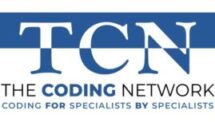Cross training sounds like it should work. A coder is a coder. Why pay a new coder to work on Orthopedics when you have two OB/GYN coders with extra capacity? The job title is the same, the job itself is the same, the software/system access/workflow are the same. Yet this thinking can get a practice in to trouble from both a compliance and revenue standpoint.
Like any job, the more you do it the better you should get at it. While this may hold true for a coder consistently seeing work in the same specialty, it doesn’t apply to the ability to code all specialties in general. How can spending 5 years coding cardiology procedures qualify someone to code neurosurgery cases? It doesn’t; there are too many differences in the codes being selected, the physiology and anatomy involved, and the rules and guidelines issued by the payors claims are submitted to for reimbursement. Likewise, if a coder is spending too much time touching an abundance of disciplines, they won’t have enough experience or specialized knowledge to be proficient coding any one thing.
Training a coder in a new specialty isn’t as simple as letting that coder code by trial and error. Proper training requires a thorough understanding of the medical specialty, all types of procedures and associated illnesses and conditions. This should all happen well before that coder is allowed to start coding. Once that coder is ready, they need to be treated as a freshly minted coder and undergo regular audits and reviews. This process takes time and effort from a management standpoint and diverts resources from your coders’ regular specialty.
All too often coding departments don’t have the time and resources to properly train their coders in the areas of work they regularly perform. Providing minimal additional training in another specialty is often a fools errand. There are no guarantees that your coder will be able to learn a new specialty and code at an appropriate accuracy level. Allowing a coder to attempt a new discipline while submitting those claims for reimbursement is a sure fire way to increase denials from payors, lower reimbursement due to undercoding, allow for providers insufficient or incorrect documentation to go unchecked, and possibly open up your organization to compliance exposure.
While cross training on its face may seem like a good idea, the results are often disastrous. Practices hoping to save money by reallocating unused or underutilized internal coding resources will find themselves harming the stability of their revenue stream, creating additional follow up work after the denial of claim submissions, and, as a result, end up costing more for the practice than having utilized an appropriate specialized resource in the first place.






